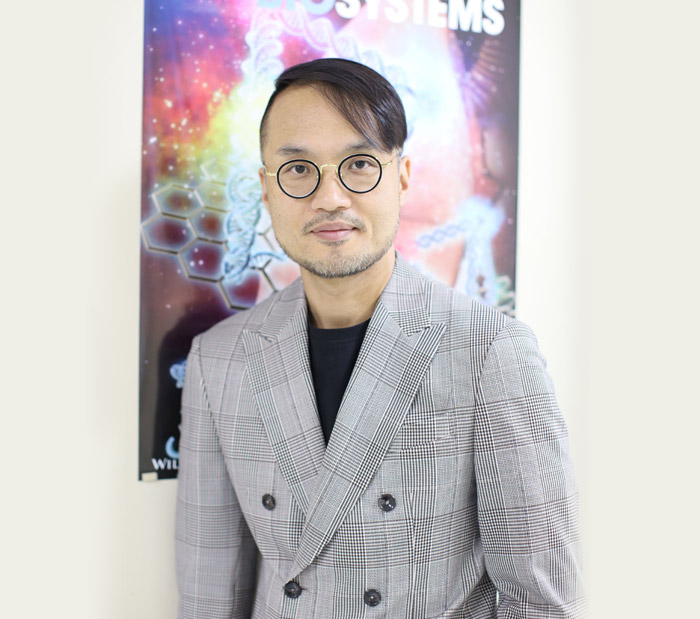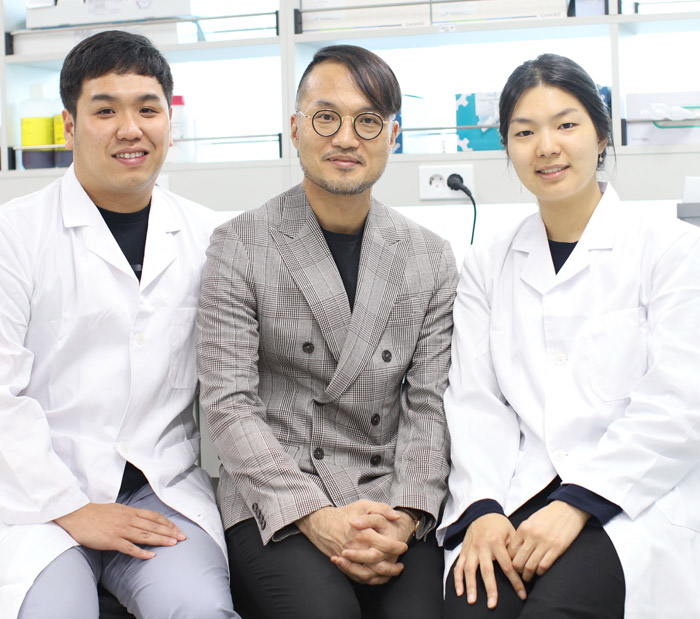Research Stories
Lung cancer can be quickly diagnosed at low cost
Identified ways to dramatically improve lung cancer diagnosis.
Chemical Engineering
Prof.
UM, SOONG HO
Researcher YUK, JISOO
Sungkyunkwan University (President: Dong Ryeol SHIN) announced on July 17 that Prof. Soong Ho UM from the Dept. of Chemical Engineering and Prof. Myung Ju AHN from the Dept. of Hematology and Oncology of SKKU Medical School have identified ways to dramatically improve lung cancer diagnosis.
The previous lung cancer screenings took about three weeks with high cost, but as result of this research, it is expected to be diagnosed in vitro within about three hours at low cost.
The researchers developed a high-performance nucleic acid nanostructure-graphene oxide complex and realized a high-speed, real-time, and multi-diagnosis of specific gene combinations of lung cancer disease without PCR. The time required for cancer diagnosis was dramatically shortened and applied to liquid biopsy, which is emerging as a non-invasive and patient-friendly cancer diagnosis method. As a result, simultaneous diagnosis of multiple biomarkers of lung cancer applicable to liquid biopsy has opened the possibility of establishing a phased lung cancer treatment model.
The first author, Ms. Ji Soo YUK, developed a nucleic acid structure-graphene oxide platform that selectively discriminates the combination of epidermal growth factor receptor (EGFR), a representative biomarker and microRNAs for lung cancer. They are well known as cancer cell fingerprint genes that contain information about the process of cancer cell progress. This platform also enables the distinction of point mutations that show a difference in one single gene mutation. In addition, multiple biomarkers are determined in real time within 3 hours, so that ultra-simplicity and ultra-precision cancer diagnosis can be performed.
The mutation of a specific gene or the change in the expression rate of genetic materials is thought to affect the development and progression of cancer. In the case of lung cancer, EGFR gene mutation is a typical biomarker, and 35 ~ 50% of Asian patients are similar. Recently, it has been attracting much attention because it is known that the expression of microRNA (as well as EGFR mutants) directly affects the production of cancer tumor. To detect these genes, target biomaterial samples should be secured by invasive and surgical methods. This causes considerable physical and mental pain for the patient and the utilization of technology is significantly limited depending on the location of the tumor. In addition, the genetic testing process takes weeks after tissue collection. Therefore, a patient-friendly diagnostic method is urgently required to evaluate the suitability and resistance of each patient's drug in a comprehensive manner. In this study, a high-speed diagnostic platform applicable to blood was developed. The mutation of the EGFR gene can be used actively in clinical prescription of the therapeutic agent, and simultaneous identification of the microRNA group will contribute greatly to the discovery and treatment of new cancer biomarkers.
The researchers have built a nano-barcoding platform system with a new nano-hybrid material between a fluorescent nucleic acid biopolymer and graphene oxide in a triangular column model. The system is designed to selectively respond to microRNAs originating from lung cancer and specific gene biomarkers such as EGFR mutants, and specific fluorescent switches are designed to react and turn on in the presence of a specific biomarker. This is applicable to various gene biomarkers at the same time and is diagnosed in vitro, so it can be used in various aspects such as gene diagnosis and prevention kit in clinical practice. In fact, we have solved the comprehensive problems of clinical kits and have explored the possibility of precision medicine for the first time. This reagent type platform is commercialized under the name of 'FluorgraTM' in DNANO Inc. (President: Young Ku Lee).
“The short-term screening time and the applicability to liquid biopsy are enabling real-time monitoring of drug efficacy in conjunction with fast prescriptions for clinical diagnosis, and thus customized treatment for patients is being realized,” said Professor Soong Ho UM. “This will evolve into a form like a commercialized pregnancy diagnosis kit and provide convenience for health and welfare in daily life as soon as possible.”


